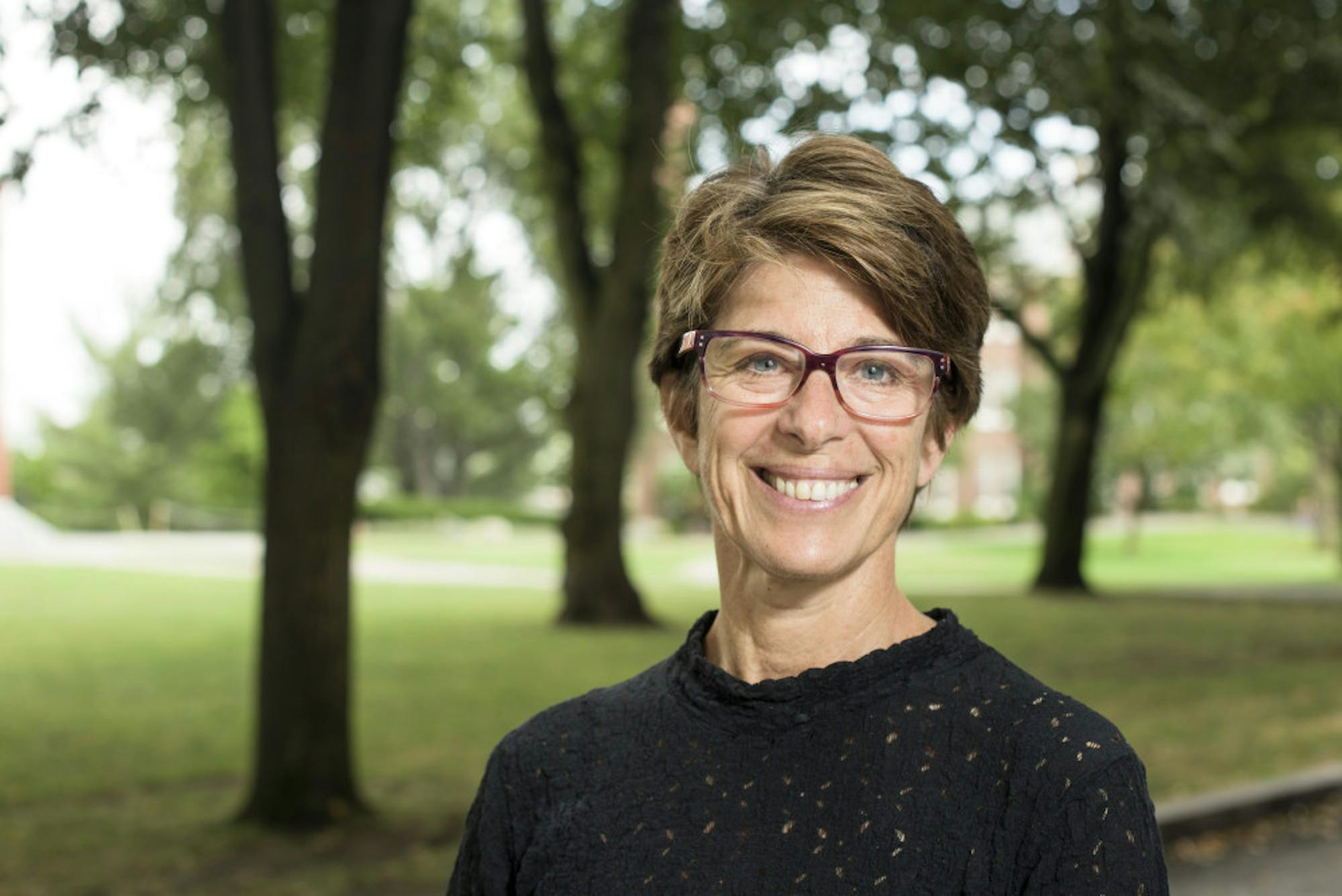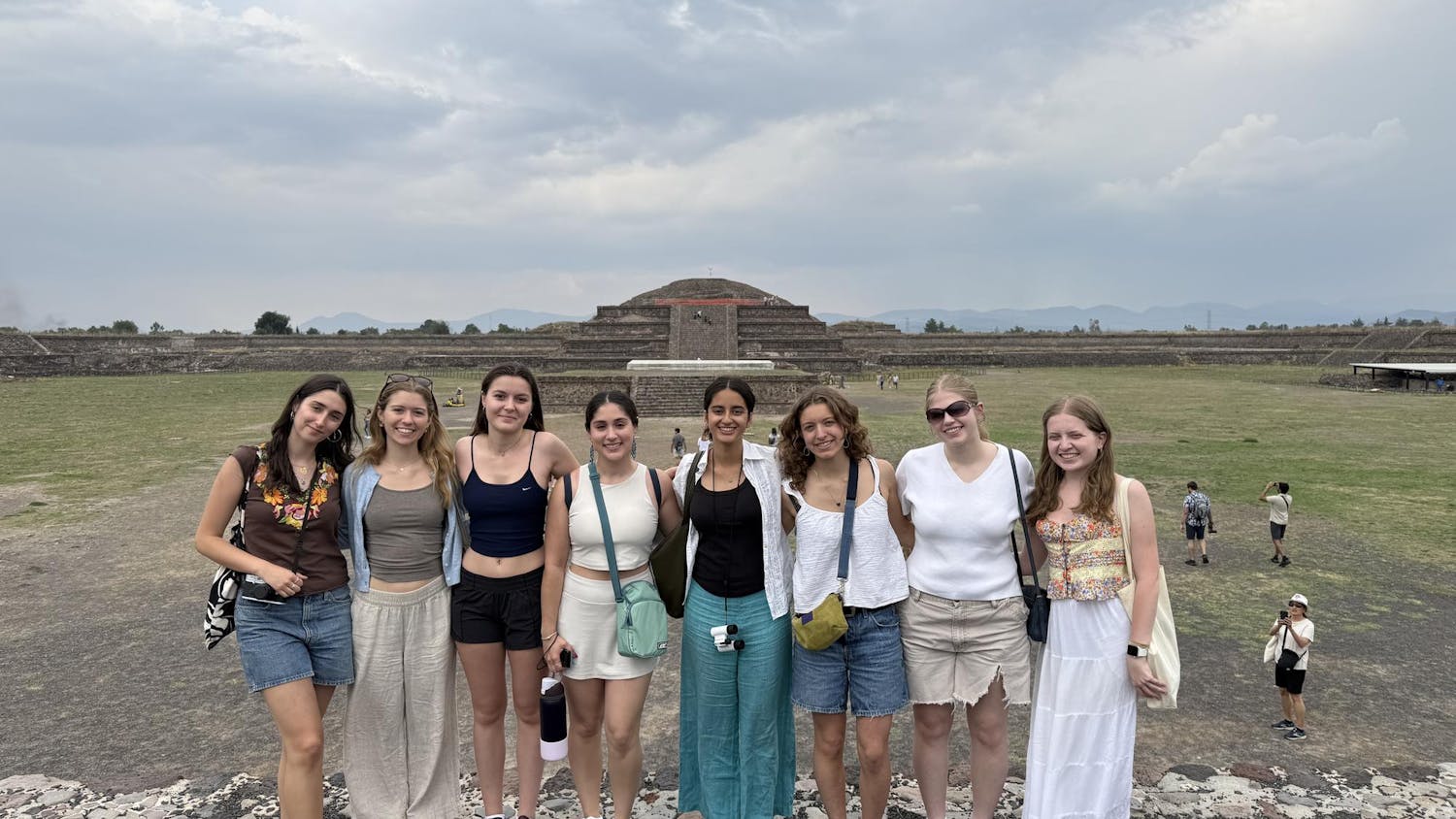Editor’s note: This is the first part of a two-part series on how changes in H-1B work visa policy under the Trump administration are affecting Tufts. The second part was published on April 4, and is posted online.
On April 18, 2017, President Trump signed an executive order called Buy American, Hire American. Part of this executive order effectively changed the H-1B visa renewal process. H-1B visas are awarded to foreign employees who are working in American specialty professional occupations, and many Tufts faculty and staff rely on H-1B visas to work at the university. In this first part of a two-part series, the Daily spoke with Diana Chigas, senior international officer and associate provost, about how the Buy American, Hire American executive order has affected the H-1B process at Tufts.
The Tufts Daily (TD): How many initial H-1B visa petitions or renewals does Tufts send out annually?
Diana Chigas (DC): The initial ones are usually [for] hiring faculty who are not American citizens or staff, or sometimes, for example, medical residents will often come here on an H-1B visa. [The number] obviously varies per year depending on what positions there are when you get hired. And I know none of the departments take the visa issues into account when they're looking at hiring.
We have, on the Boston campus, [several] active H-1B visas holdings, so not all of them are going to come up for renewal at the same time. Some of them may be finishing their H-1Bs and may be going on elsewhere, some of them are residents, so it's not that many at one time.
TD: Are there specific schools or departments on campus that are more reliant on H-1B holders than others?
DC: The medical school brings in a lot of residents, and the medical school office does some of the visa work for the hospital so they tend to have a lot. Otherwise, [among the departments] I think it's relatively spread out here.
TD: Has the number of rejections increased as a result of the executive order or has it changed in any way?
DC: I don't think so. We’ve had one or two rejections, but I don't think it's because of this executive order. I think what you'll see happening is they’re just scrutinizing these applications more. So, I think the earlier people go to the International Center and the more documentation we supply, both in Boston and in Medford, they're really well-prepared and they’ve got everything together. We haven't seen anybody being rejected just because of the executive order. But we do need to supply more documentation than we used to.
TD: What is the process for H-1B renewals and how has that process changed, if at all, as a result of the executive order?
DC: So for renewals, it used to be that you're entitled to two H-1Bs in a row, so when you get your H-1B, it used to be if you got it the first time, you submit your documentation and there’s a whole process around a labor certification and they have to look at the salary of the job and then credentials for the job, etc. There is a whole process that went through and it used to be that ... if you’re in the same job and you’re just renewing it, they say, "well we did it the last time, so we will defer to the determination of last time that all of those things (the labor certification, the job, the salary) are all okay." It made it much faster and what they’ve done now is eliminate that [aspect of it] so that it is like applying again, in terms of the documentation you submit and the scrutiny they give to it.
So we’ll see what happens in the future. Immigration is changing daily, so we’ll see what happens. But so far we've been pretty lucky that things are going smoothly. And of course, generally [we] have a great staff and they’re extremely knowledgeable, they're well connected and dot their i's and cross their t’s.
TD: Does Tufts or your office expect any more changes to H-1B policy? If you think that it might be shifting, can you plan ahead for a long-term period of flux with immigration policy?
DC: Generally, we’re braced for uncertainty and long-term flux in all sorts of immigration policies. With H-1B, you have an administration that has stated what its view is about legal immigration. H-1B gets reviewed frequently anyway, so in some senses, it's not unusual for H-1B policies to change, because they have in the past even without this overarching kind of anti-immigration [sentiment] here. So, what we do is we keep really close track of what's happening with all of the immigration policies. We have some outside counsel also that keeps us informed on any kinds of developments and what's going on so that we're as prepared as we can be for whatever changes may be coming down the pike. So, when some of these changes were happening, the offices got in touch with all the people who had renewals that were coming up to see if we could speed that up to make sure that we start these processes of renewals before the new policy comes into account.
Editor's note: This interview has been edited for clarity and length.






